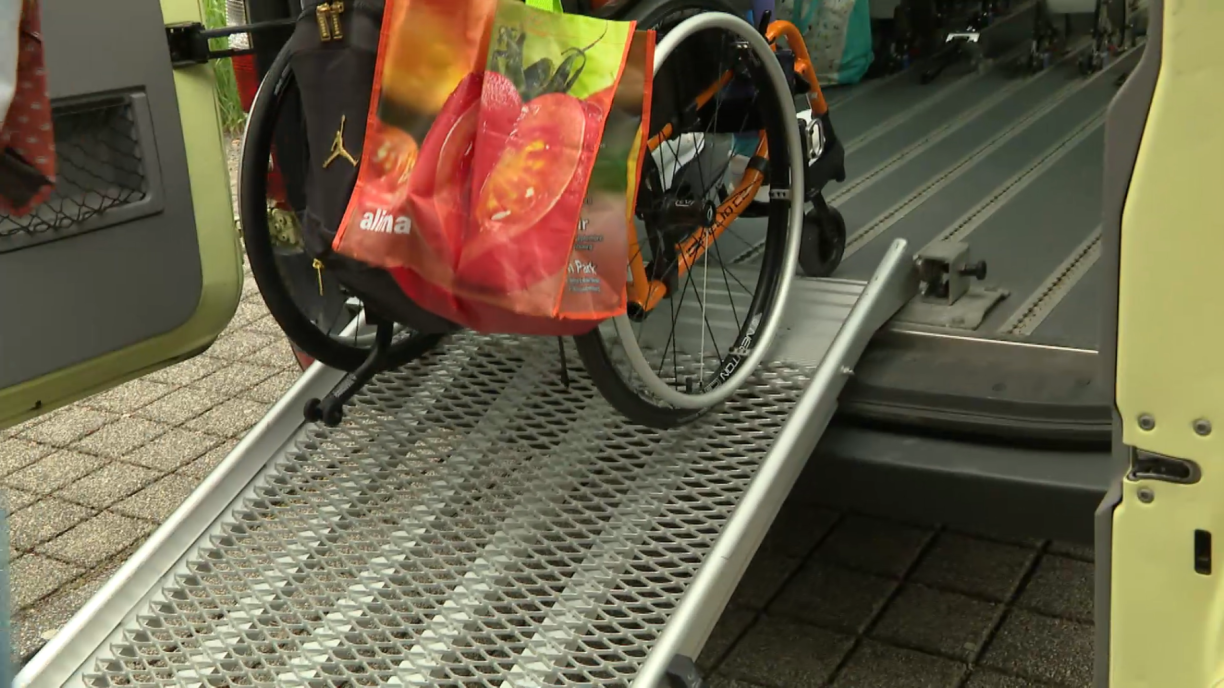
“Adapto is not preferential treatment,” argued the petition’s authors on Thursday morning, after collecting 5,600 signatures for their demands for an improved bus service for people with disabilities. Since the last debate four years ago, the same problems have plagued the service, they added, with users complaining of frequent delays, drivers without the correct training, and a lack of notifications for blind users.
The petitioners provided a selection of examples from disgruntled customers, such as a wheelchair user whose wheelchair was not properly secured, leading him to roll through the bus when the vehicle was forced to brake suddenly. Another user with reduced faculties was dropped off at the wrong location in March, leading police to spend an hour searching for them, while one woman even lost her job as the Adapto service’s frequent delays meant she could not get to work on time while waiting for the bus to collect her disabled child. Other young users have been forced to give up activities because the bus is constantly delayed, explained Martine Kirsch, president of the “Zesumme fir Inklusioun” (Together for Inclusion) association.
Patrick Hurst, president of the “Nëmme mat eis” (Only with Us) association, said the service was sporadic and unreliable, and that the the drivers did not receive sufficient training to handle the various disabilities.
The numerous examples presented on Thursday could not be described as isolated incidents, argued petitioner Ana Pinto. Joël Delvaux of the OGBL said there were “chronic and systematic” issues with the system, as the petitioners demanded an audit to determine where the problems originated, as well as improvements to the application, and more care for the service’s users.
Petitions committee president Francine Closener said the Chamber of Deputies would work on solutions to the problems presented during the debate, engaging both the mobility and family committees in handling the individual claims and the petitioners’ proposals.
Minister of Mobility Yuriko Backes promised the government would prioritise improvements to the service and said she had already commissioned a user survey for Adapto clients. As well as improving the training available for drivers, the minister said she would look into the possibility of introducing attendants to the buses. Backes went on to emphasise that the Adapto service, like other public transport, is free to use, but that the number of users had doubled over the last four years, incurring additional costs.
“Thanks to my previous capacity as finance minister, I know the service had a budget of around 18 million in 2023,” she explained. “We need to be aware that any significant improvements to the service will incur further costs, and I have already brought this up with the government.”
Joël Delvaux said the statements regarding costs were not acceptable, as disabled people also pay taxes to finance things such as public transport. He argued that people with disabilities had the right to participate in public life, as well as contributing to economic activity.
“I do have an issue with the stance that disabled people cost society so much; of course we cost money, much like every other citizen who makes use of public infrastructure such as schools or roads. We need this to function as a society. As a result of this investment, there is a return, and that applies to disabled people as well. To keep bringing up the costs, and to suggest ‘you should be grateful’... it isn’t great.”
Delvaux would be prepared to share his know-how if needed, and for free, he added with a smile.
Minister Backes said the ministry would also conduct an audit of the Mobibus service, which is responsible for transporting pupils with disabilities to and from school or workshops.